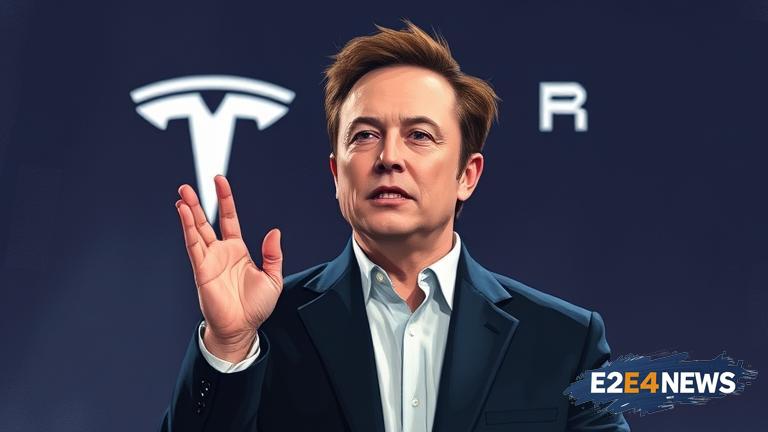Elon Musk, the CEO of Tesla, has been granted a $29 billion award, which has raised eyebrows in the business world. However, this award is not as straightforward as it seems. The good faith deal, as it is known, is a complex arrangement that has been put in place to incentivize Musk to continue leading the company. The deal is based on a series of performance metrics, including revenue and profitability targets, which Musk must meet in order to receive the full award. The award is also tied to the company’s stock price, with Musk receiving a certain number of shares based on the company’s performance. This deal is seen as a way to align Musk’s interests with those of the company’s shareholders, as he will only receive the full award if the company performs well. The good faith deal is a common practice in the business world, where executives are given incentives to perform well and meet certain targets. However, the size of Musk’s award has raised questions about the fairness of the deal. Some have argued that the award is too large and that it could be seen as a form of excessive compensation. Others have pointed out that the deal is a way to keep Musk at the helm of the company, which is seen as a key factor in Tesla’s success. The deal has also been seen as a way to prevent Musk from leaving the company, which could have a negative impact on the stock price. Musk has been known to be a demanding leader, and the deal is seen as a way to keep him motivated and focused on the company’s goals. The good faith deal is also seen as a way to promote long-term thinking and planning, as Musk will only receive the full award if the company performs well over a sustained period of time. This could help to prevent short-term thinking and promote a more sustainable approach to business. The deal has been approved by Tesla’s board of directors, who see it as a way to incentivize Musk and promote the company’s long-term success. However, some shareholders have expressed concerns about the deal, citing the large size of the award and the potential for excessive compensation. The good faith deal is a complex arrangement that requires careful consideration and analysis. It is a way to align the interests of executives with those of shareholders, but it also raises questions about fairness and excessive compensation. As the business world continues to evolve, it will be interesting to see how the good faith deal is received and whether it will become a more common practice. The deal has also sparked a wider debate about executive compensation and the role of incentives in promoting business success. Some have argued that the deal is a form of crony capitalism, where executives are given large awards regardless of their performance. Others have pointed out that the deal is a way to promote innovation and risk-taking, as executives are given the freedom to pursue new ideas and strategies. The good faith deal is a complex and multifaceted arrangement that requires careful consideration and analysis. It is a way to promote business success and align the interests of executives with those of shareholders, but it also raises important questions about fairness and excessive compensation. The deal has been seen as a way to keep Musk at the helm of Tesla, which is seen as a key factor in the company’s success. The company’s stock price has been volatile in recent years, and the deal is seen as a way to promote stability and long-term thinking. The good faith deal is a way to promote sustainable business practices and long-term thinking, as executives are given incentives to pursue strategies that promote long-term success. The deal has also sparked a wider debate about the role of incentives in promoting business success, with some arguing that it is a form of crony capitalism and others pointing out that it is a way to promote innovation and risk-taking.
